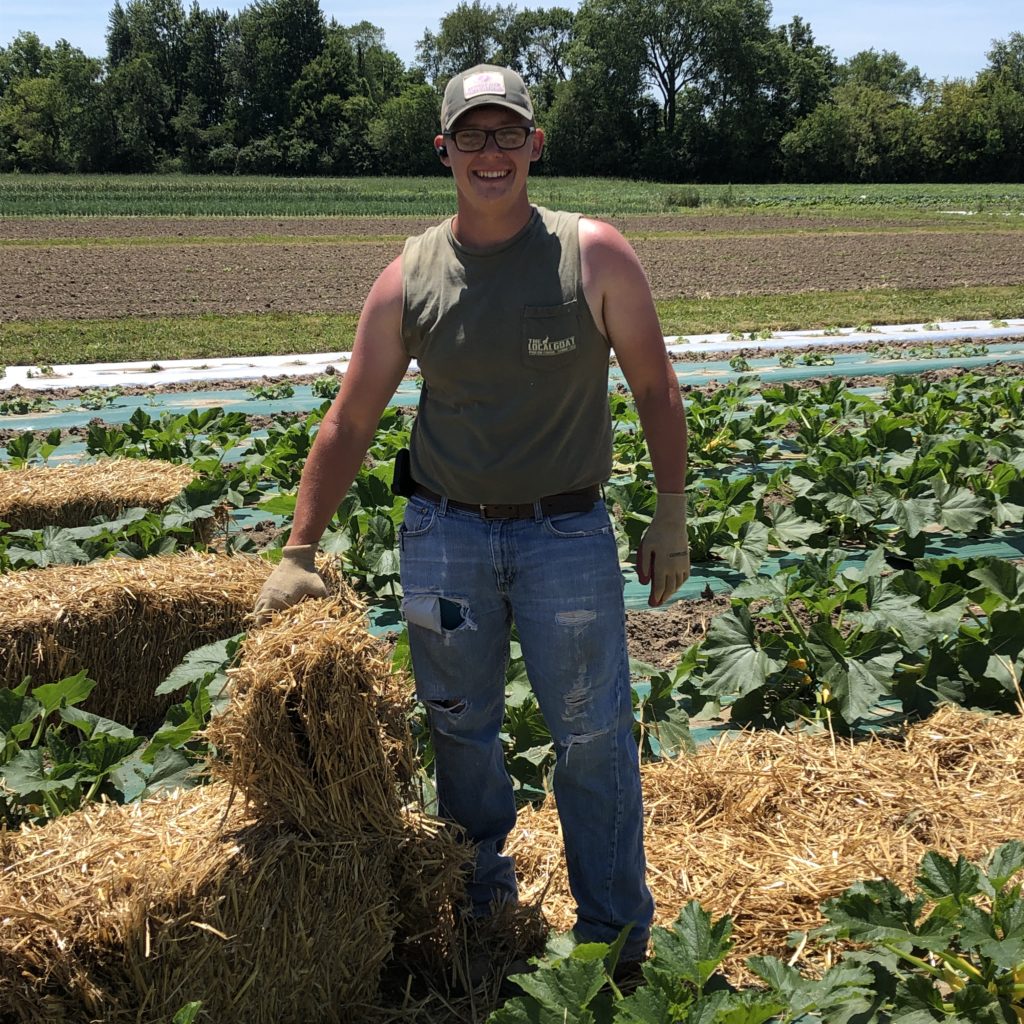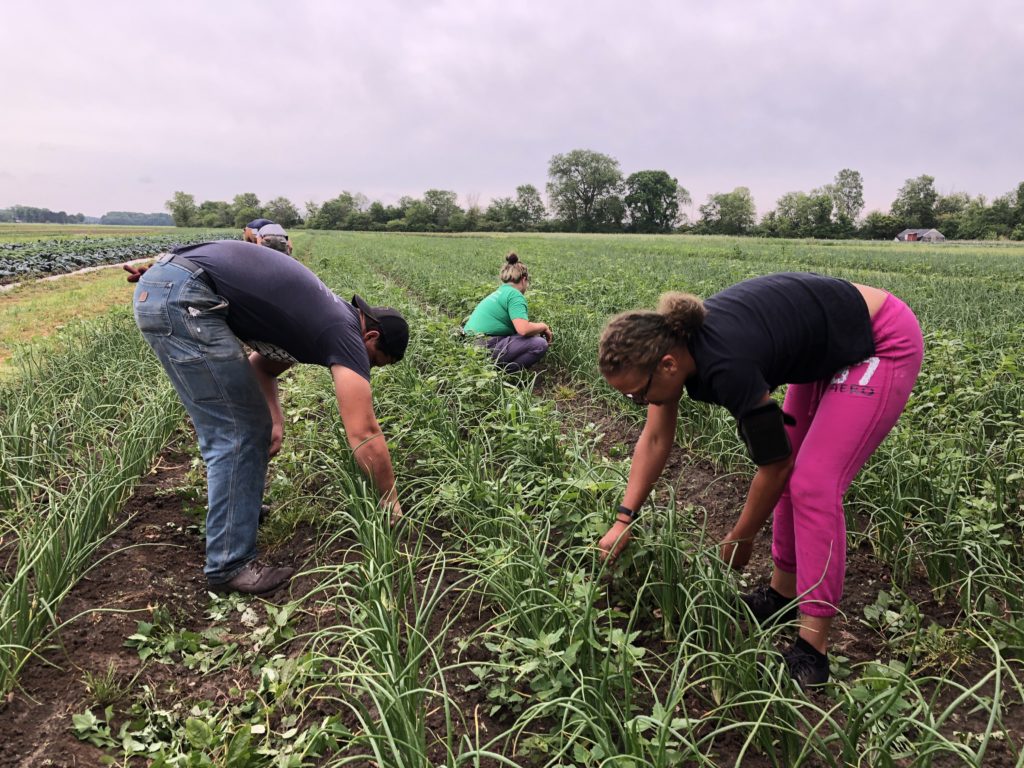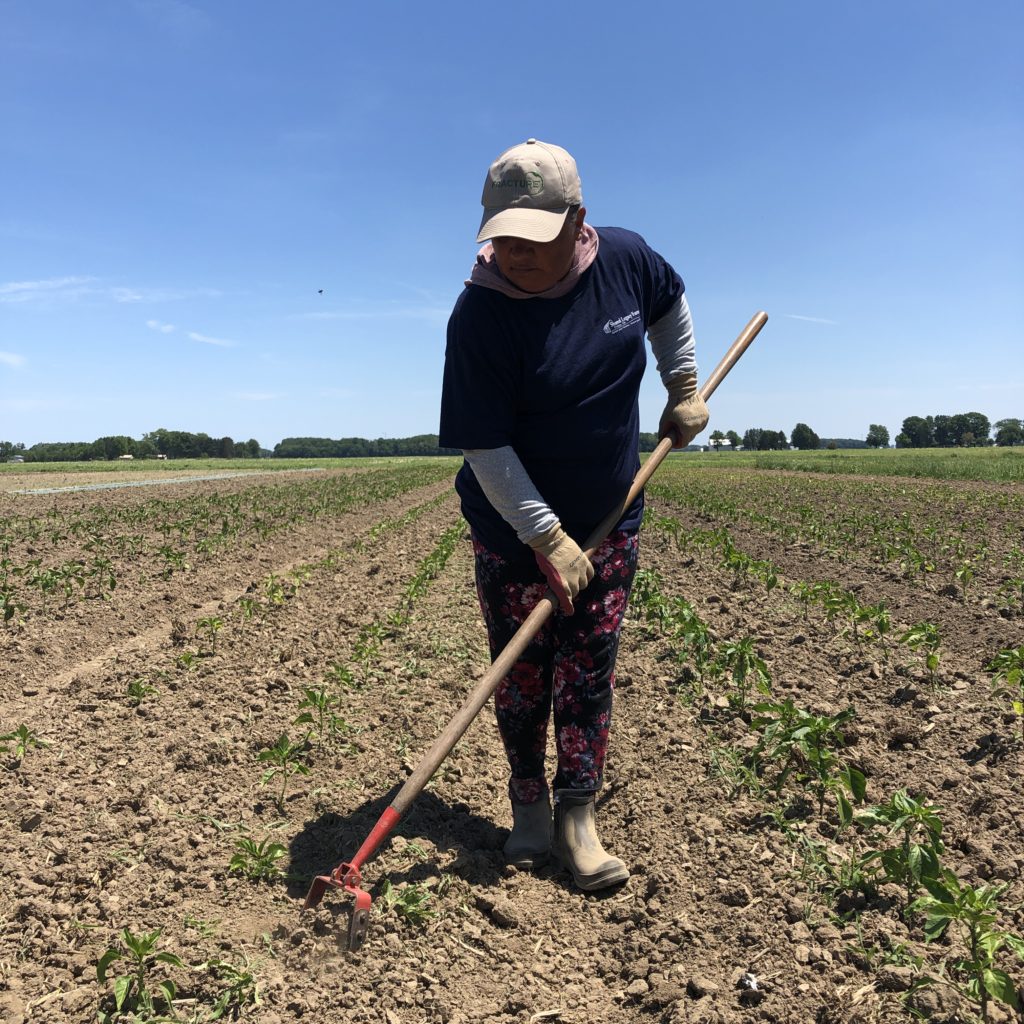How Organic Farmers Handle Weeds
How Organic Farmers Handle Weeds
Our farm is buried in weeds. After a couple days of heavy rains last week, those weeds popped up fast. So we are playing catch-up this weekend! As an organic farm, we have special ways to handle weeds. That’s what this article is all about…
First, let’s talk about why weeds are bad. Weeds are a part of farm life, and they can’t really be avoided. In fact, a small amount of weeds is acceptable. It’s when they overpower the beds, and steal valuable nutrients from the veggie plants that they are detrimental. Sometimes they’ll grow so tall, that they block the sunlight from reaching the veggie plants down below, which stunts their growth. If we let weeds persist, they’ll eventually flower and spread their seed all over the fields. So pulling weeds before they reach this stage is critical.
So how do we manage weeds? We have weed prevention systems and weed management systems. The first category refers to practices we put in place to keep the weeds from growing in the first place. Weed management refers to all the things we do once the weeds have started growing. Let’s break them down:
Flame weeding: Prevention. Kurt pops a backpack of propane on his back, and turns on the “flame=thrower.” No joke, he aims it at the newly seeded bed just as the weeds begin to sprout, withering the plant. The timing of this is crucial. For example, we know how long it takes for a carrot seed to germinate. So we will flame weed the day before the carrots pop, to make sure we don’t accidentally kill the carrots too.

Mulching: Prevention. We place straw mulch on top of the beds to act as a weed deterrant. Robbed of sunlight, the weeds can’t sprout as easily. Plus the straw cools the soil and prevents water loss by evaporation. We also use plastic mulch — the green bed covering. However, weeds often find a way to pop through the holes, and they are very difficult to pull when this occurs.
Tarping: Before we plant a garden bed area, we will sometimes tarp the area for several weeks, robbing the plants of sunshine and killing off the weeds.
Disking: When it comes to thistles, the only way we can attack those is to repeatedly disk the area until the roots have been compromised. This is one of the hardest weeds to manage.
Soil balancing: Prevention. This is a little bit ninja to explain, but all weeds thrive in soil, based on certain soil conditions. So if your sulfur content is too high, you might see more of a certain weed (who likes sulfur) growing like crazy. One way to counteract certain weeds from thriving is to know what it is they like to consume in the soil, do regular soil tests, and then make sure your soil is properly balanced.
 Pulling Weeds by hand: Nothing sexy here! When the weeds get bad, the only way to manage them sometimes is to pull them one by one. This is easier to do when you’ve got a team of people working together. You see the process moving faster, which motivates you.
Pulling Weeds by hand: Nothing sexy here! When the weeds get bad, the only way to manage them sometimes is to pull them one by one. This is easier to do when you’ve got a team of people working together. You see the process moving faster, which motivates you.
Cultivating with a tractor: We use tractors equipped with special under-carriages and finger-weeder attachments that rotate quickly and pull smaller weeds out. Jed and Kurt drive over the beds slowly in a straight line, and make sure that the tines don’t pull out the actual veggie plants too!

Cultivating with a hoe: The finger weeders can’t get in between the plants though. So for that, we send out the crew with hoes. They scrape between each transplant, and cut the stem from the root.
Cutting the tops off the bed. If the weeds have grown too tall, sometimes I’ll just chop the tops off, and try to get some sunlight to the veggies inside.
Disking up the bed: Sometimes it’s just not worth it to weed. If the cost of time for the labor to pull all the weeds exceeds the profit I would make, then it’s a no go. And I consider the bed a loss and disk it under.
Our most common weeds include: red root, purslane, crab grass, chickweed, thistles, and lambs-quarter.
It’s important to remember that weeds are a natural part of farming. Mother Nature wants to keep her precious soil covered. And those weeds will often give us clues about our soil make-up, since certain weeds thrive when certain elements are high. Who decides what a weed is, anyway? We’ve decided that it’s a weed if we don’t want it growing there! LOL. Organic farmers must work with Mother Nature in creative ways to keep the “wrong” plants from thriving in their fields.
